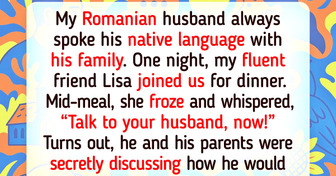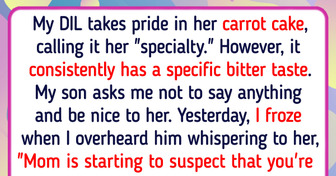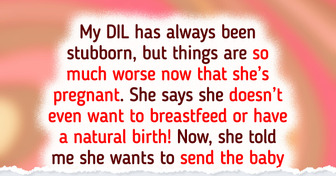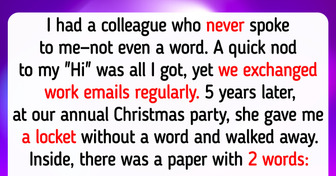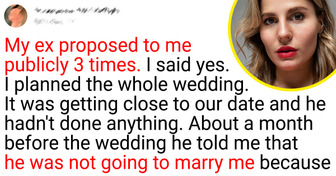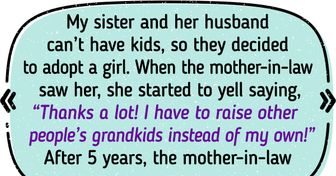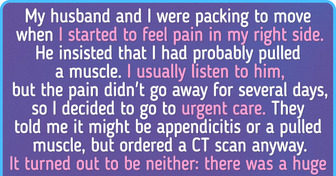When My Cousin Proposed at My Wedding, I Knew Exactly How to Steal the Show
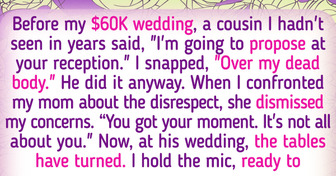
One of our readers had just come home after a draining day, ready to unwind with her little one. But the moment she saw her 3-year-old alone in the pool, her heart nearly stopped—and without thinking twice, she leapt into action. It was a moment that reminded her how quickly things can go wrong, and how fast a parent’s instincts kick in.
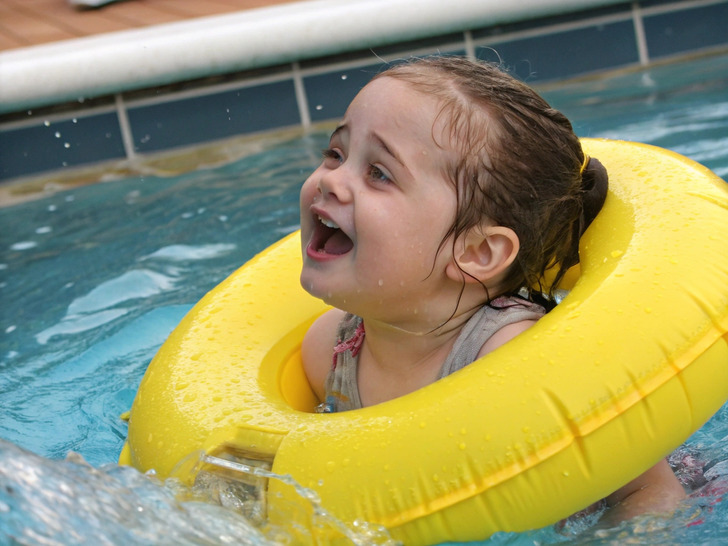
My parents have a spacious backyard with a pool, and I asked them to watch my 3-year-old while I was at work. They gladly agreed, and I thought everything would be fine.
But when I got home, I was stunned to see my toddler completely alone in the swimming pool. She was wearing a float ring, splashing around. My mom casually said, “Look how happy she is,” before heading back to tend the garden. But when I looked at the water, it seemed like my baby was starting to slip through the ring.
I yelled to get my parents’ attention, but they didn’t hear a thing—they were too focused on their gardening. I ran to the pool and pulled her out just in time. That ring wasn’t secure, and my parents don’t even know how to swim!
I told them, firmly, that I wouldn’t be leaving her in their care again. But instead of understanding, my mom rollder her eyes and said, “Don’t be dramatic. Babies are natural swimmers.”
How can I get them to see that this wasn’t just a harmless moment, but a serious safety risk?
We really appreciate you sharing your experience with us. We’d love to offer a few suggestions that might guide you toward a solution that feels right for you and your family. Remember, it’s okay to trust your instincts and take steps to protect your child.
It’s likely they truly believed they were giving your daughter a fun, happy afternoon. Begin by acknowledging that: “I know you wanted her to enjoy the pool and have fun—that means a lot to me.” Then immediately follow with the reframe: “But fun isn’t worth it if there’s even a tiny chance she could get hurt. I need to know she’s safe before anything else.” When you validate their intent first, they’re less likely to get defensive and more likely to hear the rest.
If they’re feeling shut out or defensive, gently offer alternatives. Suggest indoor playtime, storytime, or simple activities where supervision is easy and risks are low. Let them know, “I still want you to be part of her life, but in ways where everyone feels safe and confident.” This reassures them they’re not being cut off. You’re still welcoming them in, but you’re doing it with care and responsibility.
These items are more about building confidence—not serving as life-saving gear. Kids can slip through or the float can suddenly lose air without warning. That’s why keeping a close watch on little ones around water is absolutely non-negotiable.
Just because a toddler loves playing in the tub or jumping in puddles doesn’t mean they’re ready to be in a pool alone. Pools are much riskier, and at that age, a child can easily fall under the water—even if it seems shallow. Kids that young can’t keep themselves steady for long and get worn out fast. They need an adult right next to them, watching closely every second.
To make sure your little one stays safe around water, it could be a good idea to find a different childcare arrangement when swimming is involved. It’s not about blaming your parents—it just means this situation calls for more supervision than they were able to provide. You might consider hiring a sitter who knows how to handle pool safety. Or check out local daycare centers with pools and trained lifeguards to keep an eye on the kids.
Parenting differences can stir up major tension—especially when it comes to what kids eat. One reader shared that her daughter is fully committed to a vegan lifestyle and is raising her children the same way. But lately, the kids have been extra tired, constantly hungry, and even developed dark circles. The grandma’s next move sparked a serious clash within the family, and emotions quickly ran high.

